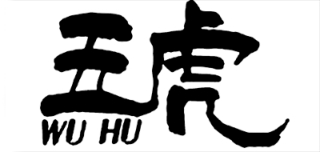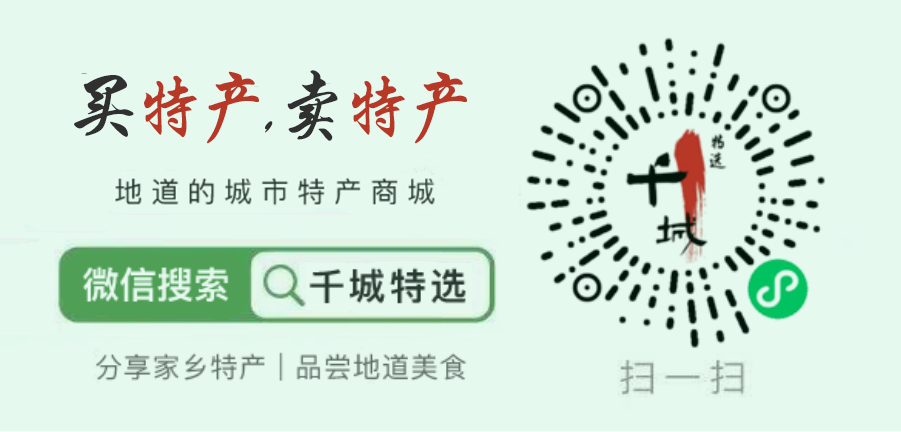 霍山黄芽在茶叶行业中的票数:146
霍山黄芽在茶叶行业中的票数:146
【霍山黄芽是哪个国家的品牌?】
外推网助力霍山黄芽品牌出海!通过在本页面挂载霍山黄芽品牌的产品链接和联系邮箱,可以提高霍山黄芽产品曝光!跨境电商爆单神器,目前只要100元/年哦~
据史料记载,霍山黄芽源于唐朝之前。
霍山黄芽唐时为饼茶,唐 膳夫经手金录 载: 有寿州霍山小团,此可能仿造小片龙芽作为贡品,其数甚微,古称霍山黄芽乃取一旗一枪,古人描述其状如甲片,叶软如蝉翼是未经压制之散茶也。
霍山黄芽自明代列为贡品。六安州志载:明时六安贡茶制定于未分霍山县之前原额茶二百袋,霍山办茶一百七十五袋。霍山县志载明人曹琥 注黄芽茶疏 中说:臣查得本府额贡茶岁不过二十斤,祖宗以来圣贤相承不闻以为不足……宁府正德十年之贡(1515年)取去芽茶一千二百斤,细茶六千斤,不知实贡朝廷几何……芽茶一斤,卖银一两,犹恐不得。
清乾隆四十一本(6-2)《霍山县志》贡茶产地载: 六安茶六安与霍山所并产也其以六安名者当霍未建县已有贡额从其朔也。《天启志》谓以六安寨得名以似凿(寨本名六万,讹称六安)。顾霍邑山多绕确六地既广且饶(产茶实浮于霍而贡额州不县之什二)……产茶之地惟东山较早,而东山皆属州境,每年大府荐新及本县贡品,率皆州民于雨前,赴县售卖;霍产悉出西南,迟在雨后,帮不及入贡,则茶之专名六安,亦纪实也。今为详著其地此霍被六大较可睹矣。东山……贡茶岁居其八九(东山25处属县境的有与儿街、但家庙、单龙寺、东西溪等21处)。又据《霍山县志》载: 光绪年间,以南乡雾迷尖(即乌米尖),挂龙尖二山所产为一邑采制既精,价亦倍于各乡。
霍山黄芽曾一度失传。1971年以来开始挖掘、研制、恢复生产。1972年4月27日至4月30日,县茶办室选派农业局茶厂、坝上茶站三位茶叶技干,在乌米尖同三位七、八十岁高龄的茶农共同炒制黄芽茶,共计14斤茶样,当即用白铁桶封装六斤上报国务院进行鉴评。翌年县土产公司又布点三处,正式生产黄芽,数年来,由审评室老茶师负责技术辅导。其余两处为乌米尖和金竹坪。此后,经过大化坪区农技站、茶站的技术人员反复切搓,试验改进,黄芽茶采制技术有所提高,品质规格趋于固定。黄芽茶收购量1973年178公斤,1980年644公斤,1985年多渠道收购量猛增至3700公斤,每斤茶价8.50元。
霍山黄芽炒制工艺未见记载,据金鸡山、乌米尖做过数十年黄芽的老农口传,解放前曾为山东商人生产 米茶 ,采摘细嫩的一芽一叶,炒制技术与今相仿。
现今的霍山黄芽系散茶又称芽茶。开采期一般在谷雨前后二、三日采摘一芽一叶至一芽二叶初展。其炒制技术分为炒茶(杀青和做形)、初烘(摊放)、足火(摊放)和复火踩筒等过程。
霍山黄芽 主产于我县海拔600米以上山区金竹坪、金鸡山、金家湾、乌米尖等地,这里山高云雾大、雨水充沛、空气相对湿度大、漫射光多、昼夜温差大、土壤疏松、土质肥沃、PH值5.5左右,林茶并茂,生态条件良好,极适茶树生长。
霍山黄芽 品质特点是:外形条直微展、匀齐成朵、形似雀舌、嫩绿披毫,香气清香持久,滋味鲜醇浓厚回甘,汤色黄绿清澈明亮,叶底嫩黄明亮。其制作工艺包括杀青(生锅、熟锅)、毛火、摊放、足火、拣剔复火等五道工序。
霍山黄芽 常年产量300余吨,产品主要销往北京、天津、上海、江苏、山东及本省合肥、淮南等地,近年还出口德国、美国。为适应国际市场需求,在中荷扶贫项目办的资助下,我县实施了有机茶综合开发项目,1000亩有机茶生产基地已经建成,即将获得转换证。
英文翻译:According to historical records, Huoshan Huangya originated before the Tang Dynasty. Huoshan Huangya was a cake tea in Tang Dynasty. According to the records of Tang Shanfu, there was a small group in Huoshan of Shouzhou, which may have imitated a small piece of Longya as a tribute. In ancient times, Huoshan Huangya was called a flag and a gun. The ancients described its shape as a piece of armour, and its leaves as soft as cicada's wings, as an unpressurized loose tea. Huoshan Huangya was listed as a tribute in Ming Dynasty. According to the annals of Lu'an Prefecture, in the Ming Dynasty, Lu'an Gong tea was made in two hundred bags before Huoshan County was divided, and Huoshan tea made one hundred and seventy-five bags. Cao Hu, who recorded in Huoshan County annals, noted in the Huangya tea book that: Chen Zha found that the amount of tribute tea in his mansion was no more than 20 jin. Since his ancestors, sages and sages had not heard of each other and thought it was insufficient In 1515, the tribute of Zhengde ten years in Ningfu took 1200 Jin of bud tea and 6000 Jin of fine tea. I don't know the actual imperial court Geometry Bud tea a Jin, sell silver one or two, still fear. According to the records of Huoshan County in Qianlong 41 (6-2) of the Qing Dynasty, the origin of tribute tea is as follows: Lu'an tea and Huoshan tea were produced in the same place, and the name of Lu'an was used to be the name of Huo Weijian county. "Tianqizhi" means to take the name of Lu'an stronghold as a chisel (the original name of the stronghold is 60000, which is falsely called Lu'an). There are six places around Guyi mountain, which are wide and rich (tea production actually floats in the second place of huoergong prefecture) Dongshan is the place where tea is produced earlier, and Dongshan is in the state territory. Every year, the Government recommends new and county tributes, and leads the people of the state to sell in the county before the rain. Huochan knows the southwest, but later after the rain, he can't help to pay tribute, so the tea is named Lu'an, which is also a documentary. Now, we can see six of them. Dongshan... Gong Cha lived in 89 (25 counties in Dongshan include he'er street, danjiamiao, Danlong temple and dongxixi). According to the records of Huoshan County, in the Guangxu period, wumijian (wumijian) was located in the south of the town, and the two hills of Hang Longjian were produced in one town, which was not only fine, but also twice the price of each town. The yellow buds of Huoshan were once lost. Since 1971, it began to excavate, develop and resume production. From April 27 to April 30, 1972, the tea Office of the county selected three tea technicians from the tea factory of the Agricultural Bureau and the Bashang tea station to cook yellow bud tea with three tea farmers aged seven or 80 in wumijian, with a total of 14 Jin tea samples. Immediately, six Jin tea samples were sealed in white iron barrels and reported to the State Council for evaluation. In the following year, the county local product company set up three more places to officially produce yellow buds. For several years, the old tea teacher of the evaluation office was responsible for technical guidance. The other two are wumijian and Jinzhuping. Since then, through repeated cutting and rubbing by technicians of agricultural technology station and tea station in Dahuaping District, the technology of tea picking has been improved and the quality specifications tend to be fixed. In 1973, the purchase volume of Huangya tea was 178 kg, in 1980, 644 kg, and in 1985, the multi-channel purchase volume surged to 3700 kg, with a price of 8.50 yuan per jin of tea. There is no record about the technology of stir frying yellow buds in Huoshan. According to the oral tradition of the farmers who have made yellow buds for decades, Jinjishan and wumijian once produced rice tea for Shandong merchants before liberation. They picked one tender bud and one leaf, and the technology of stir frying is similar to today. Now Huoshan Huangya tea is also called bud tea. During the mining period, one bud, one leaf and one bud, two leaves are generally picked on two or three days before and after the rain. The stir frying technology is divided into the process of stir frying tea (green and shape), initial baking (spreading), foot fire (spreading) and re fire stepping on the cylinder, etc. Huoshan yellow buds are mainly produced in Jinzhuping, Jinjishan, jinjiawan, wumijian and other places in the mountain area above 600 meters above sea level in our county. There are high mountains and clouds, abundant rain, high relative humidity of air, large diffuse light, large temperature difference between day and night, loose soil, fertile soil, pH value of about 5.5, rich forest and tea, good ecological conditions, very suitable for the growth of tea trees. The quality characteristics of Huoshan yellow buds are as follows: the shape is straight and slightly unfolded, even and in blossom, like the tongue, green and hairy, the fragrance is clear and long-lasting, the taste is fresh and mellow, thick and sweet, the color of soup is yellow, green, clear and bright, and the bottom of leaves is tender, yellow and bright. The manufacturing process includes five processes, such as green (raw, cooked), rough fire, spreading, sufficient fire, picking and re fire. The annual output of Huoshan Huangya is more than 300 tons. Its products are mainly sold to Beijing, Tianjin, Shanghai, Jiangsu, Shandong, Hefei, Huainan and other places in the province, and also exported to Germany and the United States in recent years. In order to meet the needs of the international market, with the support of the China Netherlands poverty alleviation project office, our county has implemented a comprehensive development project of organic tea. The 1000 mu organic tea production base has been completed and will soon obtain the conversion certificate.

















 浙公网安备 33011802001999号
浙公网安备 33011802001999号
